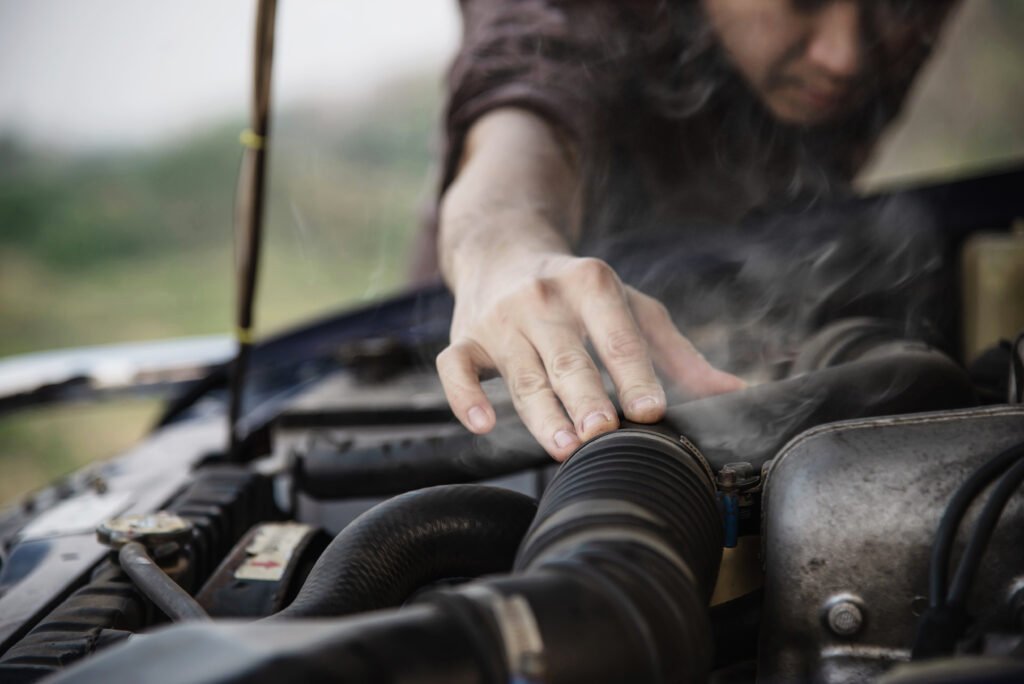Understanding Engine Blowouts and Engine Problems
When I think about catastrophic failures in my vehicle, an engine blowout is one of the worst scenarios I can imagine. It can happen due to a variety of mechanical failures or simply from wear and tear over time. Learning how to know if your engine is blown and recognizing the warning signs early has helped me avoid expensive and extensive repairs related to serious engine problems.
What is an Engine Blowout?
From what I’ve experienced and learned, an engine blowout happens when major components like pistons, rods, or valves fail catastrophically, leading to irreversible damage. Sometimes, this term is also used to describe severe head gasket failure. When the seal between the engine block and cylinder head is compromised, coolant can mix with oil, causing poor lubrication and eventually leading to engine failure if not addressed quickly.
Common Causes of Engine Blowouts and Engine Problems
Several factors can cause an engine blowout or serious engine problems. The most common include:
- Overheating: Failure in the cooling system can cause the engine to overheat, potentially cracking the engine block or causing the head gasket to fail. I always watch my temperature gauge carefully to ensure my engine stays cool and avoid engine blowouts.
- Lack of Lubrication: Oil reduces friction between moving engine parts. Neglecting to check oil levels or using the wrong oil type can increase friction, heat, and lead to engine failure. Regularly checking oil levels and using the correct oil helps me avoid engine problems.
- Poor Maintenance: Skipping oil changes or ignoring scheduled replacements like timing belts can result in major engine problems. Following the recommended maintenance schedule has been key in preventing engine blowouts.
- Manufacturing Defects: Though rare and beyond my control, manufacturing defects can create weak spots in the engine, leading to failure under normal driving conditions. Staying aware of recalls helps me stay prepared.
The Consequences of an Engine Blowout
The immediate consequence of an engine blowout is that my vehicle becomes non-functional, often requiring a tow to a repair shop. Longer-term effects can be worse — reducing the engine’s lifespan or requiring a full replacement. These engine problems are costly and inconvenient, so knowing how to know if your engine is blown early can save a lot of trouble.
Signs and Symptoms of an Engine Blowout
Detecting an engine blowout early can help prevent a complete failure. Here are some signs I watch closely:
Unusual Noises:
- Knocking or rattling: Indicates loose or worn internal parts.
- Grinding or screeching: May mean components are rubbing incorrectly, often due to poor lubrication.
- Whistling or hissing: Could signal a vacuum leak or failing gasket, which can lead to serious engine problems if not fixed.
Performance Issues:
- Loss of power: When accelerating feels weak, it might mean cylinders aren’t firing correctly.
- Difficulty starting: Slow or reluctant starts can indicate internal damage.
- Engine stalling: Frequent stalling signals a compromised engine needing immediate attention.
Visual Indicators:
- Smoke or steam: Excess smoke or steam from the hood is a serious warning, usually from burning oil or leaking coolant.
- Leaking fluids: Puddles under the car often indicate seal or gasket failures, which can cause further engine problems.
- Coolant overheating: A rising temperature gauge warns of cooling system trouble.
- Oil pressure warning light: Indicates low oil pressure, critical for engine lubrication.
- Check engine light: Using an OBD-II scanner helps diagnose specific engine issues, important for knowing how to know if your engine is blown or facing other engine problems.
Diagnosing an Engine Blowout
At home, I can check for an engine blowout by inspecting oil and coolant levels and looking for leaks. Unusual knocking or screeching noises are serious signs. Listening and visual checks can provide an early warning before the damage worsens.
Expert Advice and the Role of Engine Sensors
Mechanics advise acting quickly when engine issues arise. Preventive maintenance is vital to avoid engine blowouts. Modern cars have sensors like knock, oxygen, and coolant temperature sensors that alert me early about engine troubles. Understanding these helps me feel confident identifying if my engine is heading toward failure.
Legal and Insurance Considerations for Engine Problems
When my engine experienced major failure, I was curious about warranties and insurance. Warranties may cover engine blowouts caused by manufacturing defects but typically not regular wear. Insurance coverage depends on the policy and cause of failure. Reviewing these details helps me know what’s covered.
Repair and Replacement Options
Facing a blown engine, I had to decide between repair or replacement. Repair might be cheaper short-term, but replacement can be better for older vehicles or extensive damage. Consulting a mechanic helped me make the right choice.
Maintenance Schedules to Prevent Engine Problems
Following the recommended maintenance schedule has saved me from many engine problems and potential engine blowouts. Regular oil changes, fluid checks, and timely parts replacement keep my engine healthy.
When to Seek Professional Help
Not all engine issues mean a blowout, but severe problems like a blown head gasket, cracked block, or piston damage require a mechanic’s expertise. Early detection and professional intervention can prevent a full engine blowout.
Prevention Tips
The best way to avoid an engine blowout is prevention:
- Stay on top of maintenance and inspections.
- Use quality oils and fluids.
- Avoid overheating and overloading.
- Practice gentle driving habits.
If you want to learn more about your consumer rights when facing persistent engine problems, especially under lemon laws, check out our articles on vehicle warranties and protections.

